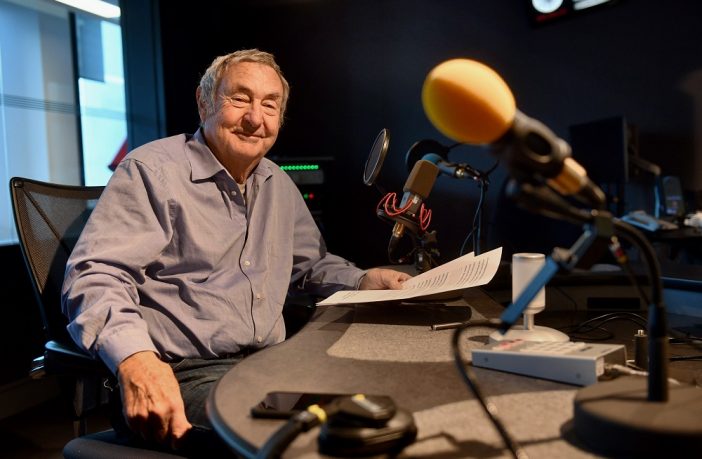A new landmark nine-part OU/BBC series on the BBC World Service, A History of Music in Technology continues on Saturday mornings, through to June 22nd.
Pink Floyd’s Nick Mason presents the series, charting the history of music and technology and exploring the world of legendary artists, producers, engineers and inventors. The series shines a light on game-changing innovations including the synthesiser, electric guitar, samplers, drum machines and the recording studio itself.
One of the academic consultants for the series and Lecturer in Music, Dr Sean Williams, who researches electronic music and performance, gives us his expert view on the series and the impact technology has had on music:
What can people gain from listening to the series?
This series is hugely ambitious in that it covers such a wide range of different music and traces some fascinating connections between different technologies. You can discover the history of sampling; how experimental French radio is connected to Hip-hop; why Steve Vai’s guitar has a hole cut in it; how a budget portable church organ changed popular music; and many, many more fascinating stories, many of them told directly by the people involved using new interviews or archive recordings.
What, in your opinion, was the technology innovation that most changed music?
Magnetic tape would have to be a strong contender. Music could be recorded and played back before the invention of tape, but tape allowed music to be broken down into tiny parts and edited so that the element of passing time became controllable. Before tape, if you made a mistake when making a recording, you had to start again. With tape, you could replace any mistakes with other recordings made before or afterwards. It also allowed composers, producers and engineers to measure time precisely and to create music out of any, and all, available sounds.
How will music evolve in the future as more technology becomes available?
Given the power of computing today, it’s hard to see how music production will change, but perhaps the most significant changes which we are seeing already are tremendous shifts in how technology allows music to be distributed and used.
Artificial intelligence may be the next most significant factor in music production and reception, and there’s a conference on this very subject in Aarhus University on May 28th.
Which composer/musician has used technology in the most exciting way?
For me, the German composer Karlheinz Stockhausen consistently used technology to do incredible things, from the early days in 1953 at the Westdeutsche Rundfunk studios in Cologne, using laboratory test equipment to produce ‘Gesang der Jünglinge’ and ‘Kontakte’, through epic pieces like ‘Hymnen‘ using similar equipment and over 40 different national anthems, to the ‘Licht‘ cycle of operas which combine incredible staging, and all kinds of technologies to deliver a total art work. His opera cycle is being performed at this year’s Holland Festival in Amsterdam from 31st May to 10th June.
I think for sheer physical excitement I’d recommend listening to a Canadian artist called Venetian Snares.
Programme credits:
This series was commissioned by Broadcast and Partnerships and is supported by the Faculty of Arts and Social Sciences, with particular relevance to BA (Hons) Music R25, BA (Hons) Arts and Humanities (Music) R14 and BA (Hons) Arts and Humanities R14
Commissioned by: Dr Caroline Ogilvie, Head of Broadcast & Partnerships
Academic Consultants: Dr Sean Williams, Dr Robert Samuels, Dr Alexander Kolassa
Media Fellow: Dr Chris Williams
Broadcast Project Manager: Leslie Jewell
Digital Content Producer: Daniel Browne
Find out more:
- Catch up with the series on the BBC website.
- Explore our extra free resources on OpenLearn
- Listen to Dr Sean Williams interviewing the series presenter, Nick Mason.



